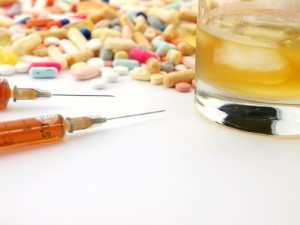This article is part of our Healthy Body Healthy Mind series and is part 4 in our series on Achieving Optimal Nutrition and Health in Pre-Conception and Pregnancy
by Amy Pearman BHSc (Nut Med) ANTA and owner of High on Natural Health
Caffeine
Excessive caffeine intake during pre-conception can affect ovulation and reduce your chance of conceiving. Caffeine is also a diuretic meaning that it increases the loss of vital nutrients from the body, impacting on overall nutritional status. Whilst you are planning to become pregnant and when pregnancy occurs, caffeine intake should not exceed 200mg/day.
| Beverage/food | Amount equivalent to 200mg caffeine (approx.) |
| Instant coffee | 2 cups/day |
| Filter coffee | 1 cup/day |
| Black tea | 2 mugs/day |
| Green tea | 4 mugs/day |
| Chocolate bar | 4 small bars |
Energy drinks are also high in caffeine, among other potentially harmful substances and should be avoided during pre-conception care and pregnancy altogether.
Remove toxins and potentially harmful substances from your diet, lifestyle and environment
Alcohol
Due to the differing results of relevant studies and also the differing effects alcohol has on each individual, I don’t believe it is safe to state any amount of alcohol to be safe in pre- conception care or during pregnancy for every woman, considering the link and association with alcohol and infertility, miscarriage, pre-term births and birth defects.
Artificial sugars/sweeteners
These are found in “diet” drinks, energy drinks, some soft drinks, processed and packaged foods. Always check the label if you re not sure. These artificial sugars have some harmful effects in the body and their safety has not been tested for pregnant women and their babies. They are designated a number in a bracket on the ingredient list so avoid foods containing these artificial sweeteners. Especially avoid aspartame (951), “equal”, “nutrasweet” and saccharin (954).
Cigarettes
Undeniably, smoking during preconception and pregnancy is not recommended. It affects the health and maturation of the ovum and is associated with low-birth weight and pre-term babies and many associated complications during pregnancy, birth and post-natal period.
Stress
Relaxation, a sufficient amount of restful sleep and exercise should are all recommended during preconception and pregnancy to reduce stress, affecting the mother both physically and mentally, with fertility, the outcome of the pregnancy and the wellbeing of the unborn baby all possible consequences of high stress and associated results within the body.
<<PREVIOUS: Specific nutrient recommendations in preconception and pregnancy
Amy Pearman BHSc (Nut Med) ANTA is a registered nutritionist practising out of her newly opened natural health clinic on the Mornington Peninsula – High On Natural Health, where she provides private consultations in clinical nutrition for people of all ages with a holistic focus. To see all her articles, click here.
The information in this article is intended as a guide only for women who are planning to conceive or are pregnant and are in general good health. Women with poor nutrition and/or underlying health conditions, especially those directly linked to subfertility, such as Polycystic Ovarian syndrome (PCOS) and obesity, may require additional nutrition, dietary recommendations and advice from a health professional when planning to conceive.
















